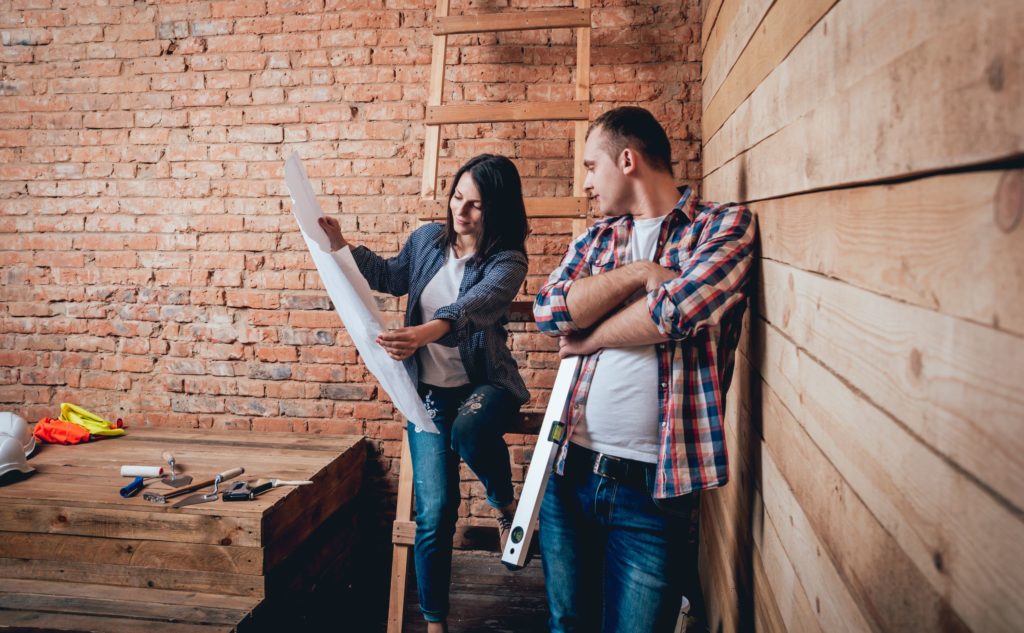
Top 6 Beginner Mistakes: Flipping Houses 101
There is plenty that could go wrong here for inexperienced or new house flippers. Start off on the right foot by avoiding these common six house flipping mistakes.
Experienced house flippers know that flipping a home is not just a hobby. It’s a real business, and it should be treated as such. House flippers find and purchase homes that most homebuyers aren’t able or willing to renovate, and improve them to the point where there is buyer demand.
As you can imagine, there is plenty that could go wrong here for inexperienced or new house flippers. That doesn’t mean you can’t make real estate investing work for you. Start off on the right foot by avoiding these common six house flipping mistakes:
1) Not having enough money
Stick with your proposed budget. The number one mistake investors make when flipping a home is not having enough money, which is an important step covered in our beginners guide to flipping houses. Before getting started, you should fully understand how much it costs to flip a house and confirm that you have the money to cover both hard and soft costs for the project. Simply put, your return on investment depends on accurate budgeting and cost planning, which helps you drive toward a successful project.
2) Failing to write a business plan
You would not start a bakery down the street without a business plan, so why would you make a large real estate investment without writing one? Drafting a strategic business plan before diving in, also helps investors understand their risk, reward, and ROI after the house is flipped and sold.
Time is money, especially when flipping a house. A strategic business plan not only helps real estate investors estimate the timeline and the potential costs, but also helps them understand the risks, rewards and ROI of the project. The longer the house flipping project takes, the more you’ll pay in carrying costs, such as utilities, financing, and property taxes. A solid business plan (in addition to your budget) helps you pinpoint these costs and gives you a step by step overview of the entire project.
3) Forgetting to purchase property insurance
Not buying property insurance before undertaking any property investing project is a rookie mistake. Property insurance reimburses homeowners and reduces risk for house flipping projects, if and when damages occur on their property, such as those caused by theft, flood, or a fire.
If flipping a home is all about getting a return on your initial investment, then you’ll want to do everything you can to protect what you’ve put into the project. Investors can either purchase property insurance coverage locally or online, but it’s wise to shop around as premiums can vary.
4) Choosing the wrong partner to invest and help with the project
Investors typically look for help wherever they can find it, since house flipping is such a huge endeavor. Got a buddy who says he’s game to invest or help renovate? Think twice.
House flipping can be stressful, so you want to work with trusted sources and experts who are familiar with the renovation process and are capable of taking the project on. This may be more than what your handyman buddy can handle, and may even put a strain on your relationship should the project not go as planned. You don’t want to fracture your relationship, especially over real estate investment.
On the other hand, working with a respected contractor, plumber, or carpenter that you have vetted, ensures you get quality work, which correlates directly to the return on investment.
If your home is unique, such as a historic property, then it’s wise to work with an expert who specializes in historic homes. A new home builder who develops modern properties may not understand the nuances of renovating historic homes. Always find a Realtor you trust, consult with vetted experts who have flipped houses successfully and build a solid network of contractors who have great reputations in your area.
5) Not understanding your market
Just as not knowing your business partners puts you in a tough spot, not fully understanding your market can also harm your investment success. Performing a market analysis allows you to understand the risks and rewards in the neighborhoods you vet and is imperative to selling your flipped house successfully. It also helps you understand if now is even the best time to fix and flip a house in your area, and what the current housing market trends are, such as demand for housing in general, what renovations home-buyers prefer, expected sale price, and more.A market analysis and a business plan go hand-in-hand as they both help investors prepare themselves for the duration of the house flipping process as well as what comes after.
6) Not defining an exit strategy
Lastly, to really ensure you succeed in your house flipping venture, always prepare an "exit strategy", which relies heavily on the price point at which you have listed the home.
Talk to your Realtor to determine the listing price, so that you can price your home to sell quickly, cutting down on the time during which carrying costs are incurred.
Good things take time, and flipping houses doesn’t happen overnight. It’s an investment that takes preparation, research, financing, skill, and a solid crew. Take the correct action steps and avoid the 6 common mistakes to ensure your first house flip pays off for you.